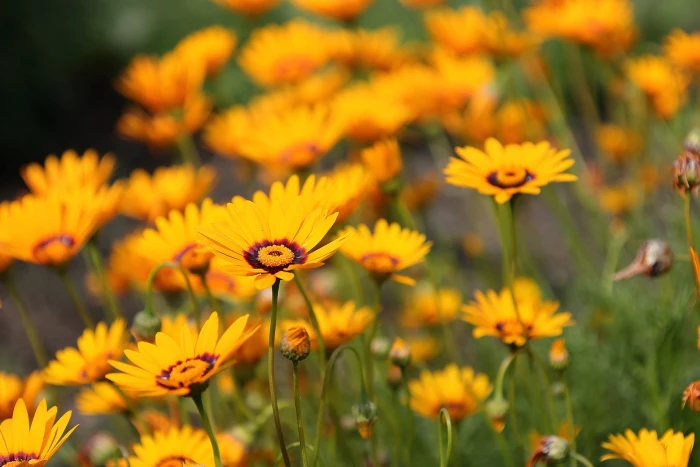Solar Fire
(Ursinia anthemoides)
Solar Fire (Ursinia anthemoides)
/
/

Cephas
CC BY-SA 4.0
Image By:
Cephas
Recorded By:
Copyright:
CC BY-SA 4.0
Copyright Notice:
Photo by: Cephas | License Type: CC BY-SA 4.0 | License URL: https://creativecommons.org/licenses/by-sa/4.0 | Uploader: Cephas | Publisher: Wikimedia Commons |























































Estimated Native Range
Climate Requirements for Suncheon, Korea, Republic Of
| This Plant | Your Site | Plant Suitability for Your Location | ||
|---|---|---|---|---|
| • Precipitation | 1" - 58" | 55" | Aquatic | Aquatic |
| • High Temp. | 70°F - 98°F | 86°F | Your summer temperatures are normal for this plant. | Excellent |
| • Low Temp. | 18°F - 50°F | 26°F | Your winter temperatures are normal for this plant | Excellent |
This plant may not grow well at your location - your precipitation is too high.
Summary
Ursinia anthemoides, commonly known as Solar Fire, is an annual herb native to the Namaqualand region and other arid areas of South Africa, where it thrives in open plains and sandy soils. It typically grows to a height and width of approximately 1 foot (0.3 meters), forming a compact mound. The plant is characterized by its finely divided, feathery foliage and daisy-like flowers that feature a striking combination of yellow petals with a purple to black center disk. These flowers bloom profusely in the spring and summer, adding a vibrant splash of color to the garden.
Ursinia anthemoides is valued for its showy flowers and ease of growth, making it a popular choice for annual borders, rock gardens, and wildflower meadows. It is also used in xeriscaping due to its drought tolerance once established. Gardeners appreciate its ability to attract pollinators such as bees and butterflies. While it prefers full sun and well-drained soils, it is adaptable to a range of soil types, provided they are not waterlogged. It is generally free from serious pests and diseases, but can be susceptible to root rot in poorly drained conditions. Deadheading spent flowers can encourage prolonged blooming.CC BY-SA 4.0
Ursinia anthemoides is valued for its showy flowers and ease of growth, making it a popular choice for annual borders, rock gardens, and wildflower meadows. It is also used in xeriscaping due to its drought tolerance once established. Gardeners appreciate its ability to attract pollinators such as bees and butterflies. While it prefers full sun and well-drained soils, it is adaptable to a range of soil types, provided they are not waterlogged. It is generally free from serious pests and diseases, but can be susceptible to root rot in poorly drained conditions. Deadheading spent flowers can encourage prolonged blooming.CC BY-SA 4.0
Plant Description
- Plant Type: Herb
- Height: 0.5-1.5 feet
- Width: 0.433-1.3 feet
- Growth Rate: Moderate
- Flower Color: Yellow
- Flowering Season: Spring, Summer
- Leaf Retention:
Growth Requirements
- Sun: Full Sun
- Water: Medium
- Drainage: Fast
Common Uses
Bee Garden, Butterfly Garden, Drought Tolerant, Low Maintenance, Showy Flowers, Street Planting
Natural Habitat
Open plains and sandy soils in the Namaqualand region and other arid areas of South Africa
Other Names
Common Names: Parachute Daisy, South African Marigold, Mountain Marigold, Bergmagriet
Scientific Names: Ursinia anthemoides
GBIF Accepted Name: Ursinia anthemoides (L.) Poir.